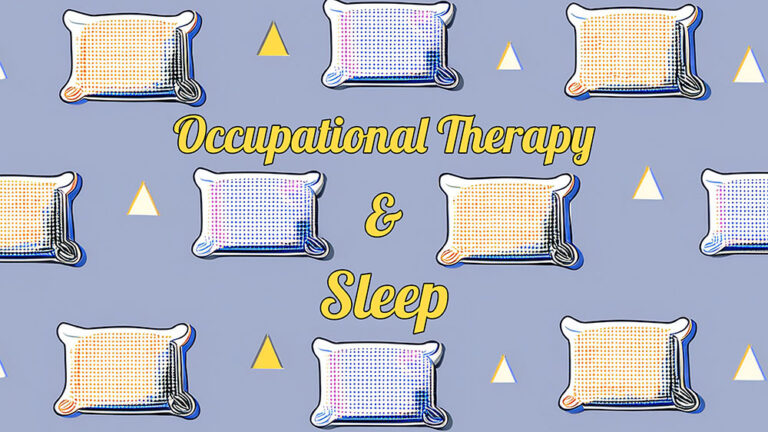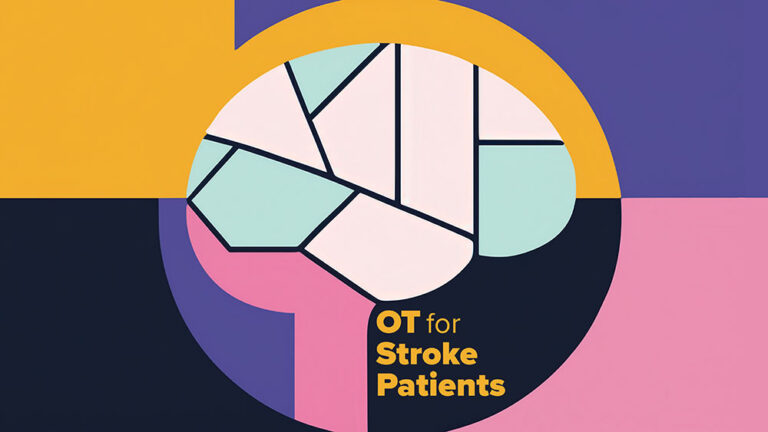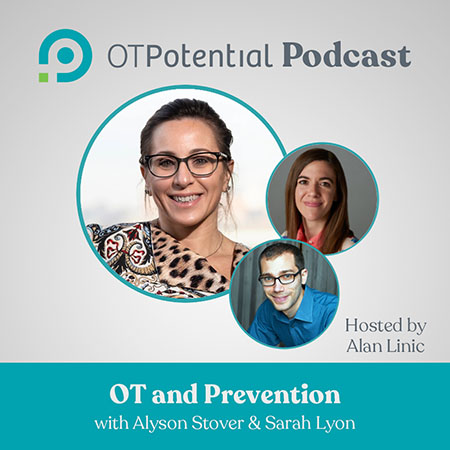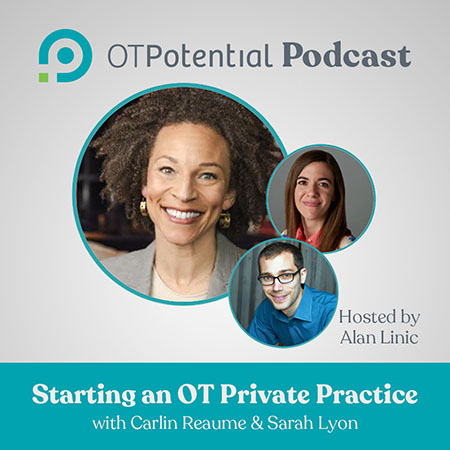Here you’ll learn all about outpatient occupational therapy. You can also find an outpatient OT near you!
You’ll find that there are many health conditions that occupational therapy (OT) practitioners can help you manage and treat. In essence, occupational therapy will help you participate in day-to-day activities when an injury or diagnosis makes it hard to do so.
Let’s get going!
Find an outpatient OT near you
You can use the OT Directory to find an outpatient OT in your area.
Getting started: Do you need a referral from a doctor?
Most states have some form of direct access to outpatient OT, though it is often limited in scope. And many insurance policies still require a doctor’s referral in order to cover OT services. To find out if you need a referral, you typically need to answer these two questions:
- Does your state require you to get referred by your doctor?
- Does your insurance require you to get a referral?
There is so much variation to these answers, we suggest you reach out directly to your local therapy provider to guide you through this process.
How much does therapy cost?
Again, lots of variety here.
In general, an hour therapy session can range from $55-$400, based on the specialization of the therapist, your location, and if you pay out-of-pocket (meaning you don’t use insurance). (See different OT specializations below.)
If you are seeking coverage through your insurance it is not uncommon to have some type of co-pay or coinsurance. Here is the information on coverage by Medicare.
Because the initial evaluation can take longer and require specialty assessments, it is not uncommon for a therapy clinic to charge more for the first visit.
Don’t hesitate to ask the clinic or therapist about the cost of your insurance at any point before or during occupational therapy. Especially, if there are any financial concerns about affording treatment. There may be options available to you to help cover the cost of therapy if your insurance does not cover treatment.
What is the typical duration (length) and frequency of outpatient OT?
Outpatient occupational therapy can vary tremendously in how often you go, how long each session is, and how many sessions you have during your plan of care, depending on your goals and condition.
A typical course would be a one hour session, 2-3 times a week for 4-8 weeks. But, for ongoing complex diagnoses, you may need to see an OT 1-2 times per week for 6-12 weeks. However, each plan of care duration and frequency look different depending on your diagnosis, your clinician’s clinical judgment, and insurance coverage.
For a deeper look into the typical course of treatment for common OT conditions, see our treatment guides below.
If you’re managing a chronic condition, you may be eligible to receive what is called “maintenance therapy”. Maintenance therapy plans vary drastically but they often only involve one therapy visit per week. Maintenance therapy is most commonly provided for individuals with chronic conditions where they are at risk of a decline in function without treatment such as multiple sclerosis (MS), Parkinson’s, dementia, etc. Maintenance therapy is covered under Medicare Part B if certain criteria are met, but it may not be covered under other insurance plans.
Do I need to go to a clinic for outpatient occupational therapy?
Typically, when people think of outpatient occupational therapy they think of traveling to a therapy clinic or even visiting your local hospital to see the therapist.
But, you may be able to receive OT services in your own home. (This is called home-based occupational therapy). Home-based occupational therapy often includes home modifications and recommendations for aging safely at home. This type of therapy is billed differently than what is considered traditional home health which is commonly provided by a home health agency and can involve other clinicians such as a nurse and physical therapist.
OTs are also increasingly providing telehealth options. And, there is a growing number of pediatric therapists who chose to conduct sessions out in nature to leverage the healing power of natural environments.
To find out about options like these, we recommend reaching out to your local therapy clinic.
Why would you need outpatient therapy?
Occupational therapy practitioners help people participate in daily life when an injury or diagnosis makes it difficult to do so.
One way to identify if you need therapy is to ask yourself:
Is a health condition making it difficult to do something that used to be a part of my daily life?
If so, you may be a good fit for OT.
This would also be a good place to note that outpatient OT may be a later chapter in a long rehab journey. When it comes to OT for adults, you may have already seen occupational therapy practitioners in other settings, such as the hospital, inpatient rehab, skilled nursing facility, or in home health. However, some people jump straight to outpatient therapy especially if they had a joint replacement or an orthopedic surgery.
For kids, some may see an OT at school to address academic related difficulties and then an outpatient therapist for other pediatric interventions.
What should I look for in an outpatient occupational therapist?
This is the million-dollar question! While we all have OT training, we also have lots of specializations.
The first question is: are you looking for a pediatric outpatient therapist for your child or for someone who works with adults?
If you’re looking for an OT who works with children, head to our post on pediatric occupational therapy and then our post on pediatric interventions. This will give you an idea of what services OTs offer kids.
If you’re looking for an outpatient occupational therapist who works with adults, then there are several broad categories:
- Orthopedic occupational therapist (who specializes in injuries impacting your joints and muscles)
- Sports medicine
- Hand therapist or Certified Hand Therapist (CHT) (who specializes in the upper extremity which includes the hand, elbow, shoulder, and sometimes neck)
- Pelvic floor therapist (who specializes in incontinence, sexual health, and other issues involving the pelvic floor)
- Lymphedema therapist
- Neuro occupational therapy (specializing in conditions like Parkinson’s disease, MS, and stroke)
- Dementia specialist
- Pain specialist
- Maternal health OT
- Cancer rehab therapist
- Hippotherapist (who works with horses)
- Aquatic therapist (who utilizes a pool)
To see a full list of our possible OT certifications see this post.
If you have a very specific need, we recommend calling the clinic and asking to speak with the therapist before seeing them to determine if they’re the right fit for you. Each therapist has unique knowledge and they want to make sure you get the best care possible. Additionally, each clinic is equipped with different technology. These devices are often called modalities which are used to enhance your recovery.
What to expect on your first visit?
Working with an occupational therapist is a partnership.
On your first visit we will want to discuss with you:
- Your goals
- What matters to you in the healing process
- What difficulties you are having with completing daily tasks and living in your home
- Any other factors (like diagnoses) that we need to know about
We may want to see you perform tasks that may be difficult. If there are any physical/cognitive impairments that are limiting you, we also may want to measure them with a standardized OT assessment. If you are concerned about remembering everything, it can be helpful to have a friend or family member come with you. If you had an injury, it can be helpful to the therapist if you bring a copy of your scans or tests you may have had previously such as MRIs, X-rays, CT, nerve conduction studies, etc.
After a thorough evaluation, your therapist will work with you to create a treatment plan that meets your needs. Learn more about OT treatment, with our occupational therapy treatment guides.
Bottomline—why is it worth it to see an OT?
There are lots of health “gurus” out there. But, we are of course totally biased on this site to OT.
OTs are highly trained, our licenses provide a high level of accountability, and that referral from your doctor is an indicator of how closely we work with your entire health care team!
We came to this field to help people like you. People who are going through a complex health situation. We will use all of the tools at our disposal—research, our experience, our network—to help you improve your day to day life.
We look forward to partnering with you!










